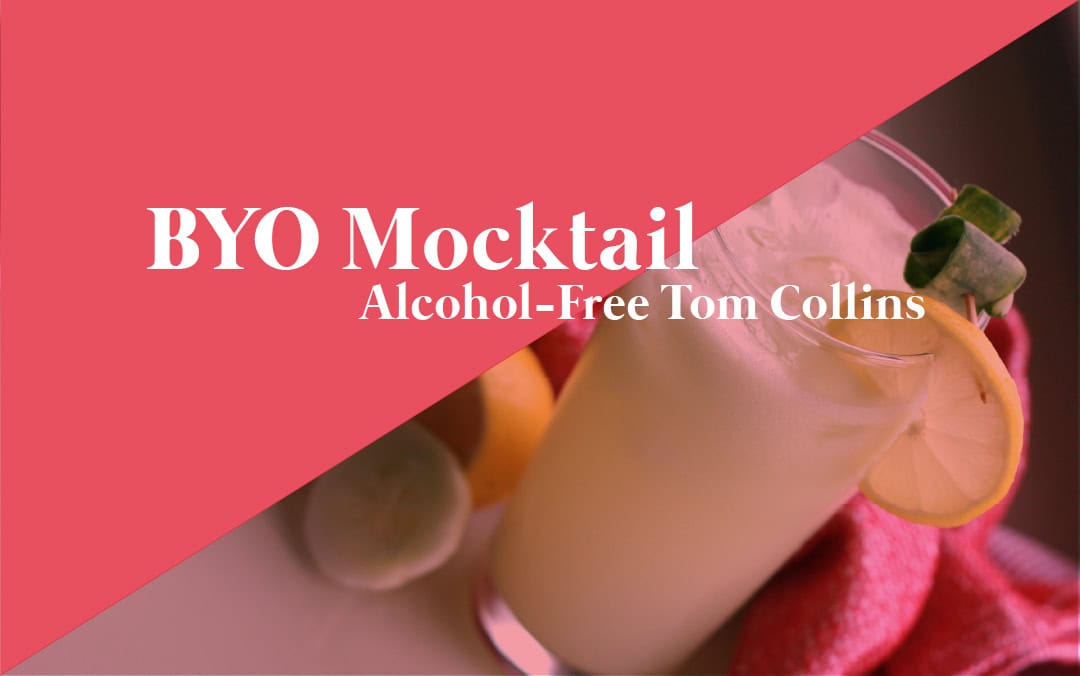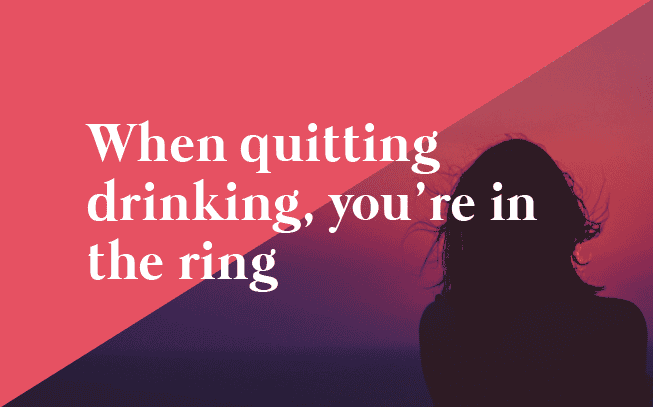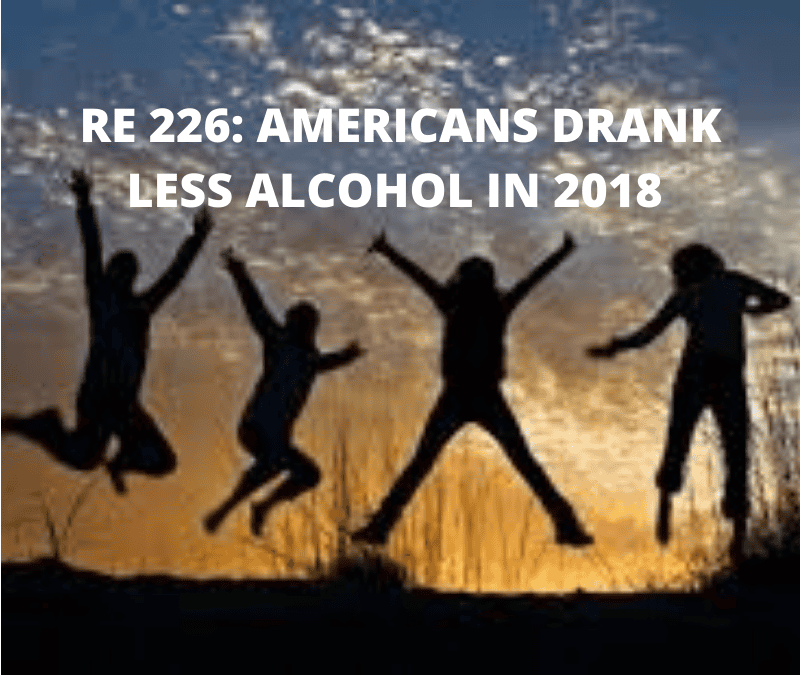001: Do You Have a Drinking Problem?
Podcast: Play in new window | Download
Subscribe to the Recovery Elevator Podcast Apple Podcasts | RSS | More
Answering this question is easier than you might think……..
Podcast: Play in new window | Download
Subscribe to the Recovery Elevator Podcast Apple Podcasts | RSS | More
Answering this question is easier than you might think……..



I’d like to zoom out a bit and talk about the journey for a moment. There is no one size fits all approach to ditching the booze, but I think most of us can agree, there can by trying times. You often hear on the Recovery Elevator podcast from myself and interviewees how incredible a life without alcohol can be, which I can attest to. Still, the pathway can be complicated at times, and for reasons unknown, more challenging for some.
There is a comfort knowing you’re not alone. That you’re not the only person on the planet, who struggles with alcohol, which is how I felt when I first began my journey early last decade. There is also a comfort knowing that collectively, people find this pathway hard. The pains and painful moments are all part of it, and you’re not alone. Keep in mind, of the roughly 100,000 genes we inherit, not of them is the addiction gene, and you can reverse this progression.
Right now, since you’re reading this, it places you in the ring. You’re an active participant in the game of life. You’re in the center of the ring, and not up in the grandstands observing. And you’re an absolute badass, for purposefully placing yourself in this ring where there’s a good chance, almost certain chance, you’re going to get dirty. Smacked, kicked, punched, rolled over on, and a lot of other unpleasant things. This isn’t you saying, well, I’m open to failing, it’s you saying, I’m going to fail as many times as I need to be successful.
I admire each and every one of you for consciously choosing the enter the ring. Seriously. It’s impressive. I applaud all of you for continuing to listen to the podcast even if the message hasn’t quite “hit home” yet.
Now, to be fair, by electing to be here, living life on planet earth places you in the ring, so everyone is more or less in the ring. But your decision to move forward in life without alcohol, to address what’s holding you back in life, places you in the center of the ring and not way up in the upper decks as an observer. Your conscious decision to depart from the booze, from what provided relief, from what used to make your job, anxiety, depression, shame, guilt, winter, your neighbor Tom, and individual relationships bearable places you front and center of the ring.
You might be saying, “wait a second Paul, I haven’t told anyone about my decision to quit drinking.” Well, even if the only ship you’ve burnt is with yourself, which is where it starts, you’ve still taken the most essential step in your life. This is what makes you brave… courageous… valiant… daring… vulnerable… adventurous… and a bold leader.
Now you may have heard courageous and vulnerable in the same sentence, and that’s no coincidence because they are the same damn thing. And Deep down, you know, the only way out is through. And to go through, you get cracked open, in the most beautiful of ways. It’s almost like a vulnerable sandwich. First, we must be courageous enough to be vulnerable. Then we must be courageous again to address the vulnerable parts. The vulnerability sandwich. I like it, I will personally be adding some horseradish mayo or honey mustards. I’m a huge sauce guy.
Now let me describe what the ring looks like… Imagine a bull ring from Spain. One that Ernest Hemingway would write about in the “Sun Also Rises.” When you stop running, turn, and face your fears, you just made the conscious decision to place yourself in the center of the ring. Now, as I said before, everyone is in the ring, but you just came down from row 55, which is near the top and are now inside the ring. You can still get shoved around while sitting in the top row of the stands, and there’s a slim possibility you’ll to confront a bull, but by sitting way up there, you’re well in the comfort of your comfort zone.
Apart from the occasional shirt getting launched up there from a t-shirt cannon, not much happens. It’s a bunch of people who are living behind screens which have mighty thumbs and can type whatever they want. Up there, where you used to be, It’s called the sidelines of life. Where all you have is talk, inaction, and empty goals. How does that saying go? Talk is inexpensive? Talk is a bargain? Talk is of lesser quality… Talk is cheap. Got it.
So here you are, inside the ring. You look down to find your shoes are covered in dust. You suddenly feel smaller. Things don’t smell quite right. And you see large bulls running around. You see swords, bows, and arrows, spears, dinner parties where alcohol is flowing freely, your best friend Aaron is offering you a vodka cranberry. You don’t have things figured out. You recognize it’s only a matter of time before you get your ass kicked.
As I mentioned last episode, it’s not about avoiding these ass-kickings in life; it’s about getting up and back into the ring. I think I’ve done a fair job of accurately describing what this journey will be like. I cover this specifically in episode 250 titled “Is Sobriety all Unicorns and Rainbows.” Sure, after alcohol, a new life awaits, one without crushing hangovers and self-loathing, but when in the ring, there will be challenging days. Moments you don’t think, keyword think, you’ll be triumphant, but you are. You find the strength because it’s there. I know it’s there. It always has been.
Let me read one of my favorite quotes of all time for you. One that I had framed and hung up on my wall before the very FIRST episode of Recovery Elevator podcast dropped on February 25th, 2015. I remember looking up at the framed quote on the wall, them uploading episode 001 to iTunes and then said to myself, “Oh shit, here we go.”
“It is not the critic who counts; not the man who points out how the strong man stumbles, or where the doer of deeds could have done them better. The credit belongs to the man who is actually in the arena, whose face is marred by dust and sweat and blood; who strives valiantly; who errs, who comes short again and again, because there is no effort without error and shortcoming; but who does actually strive to do the deeds; who knows great enthusiasms, the great devotions; who spends himself in a worthy cause; who at the best knows, in the end, the triumph of high achievement, and who at the worst, if he fails, at least fails while daring greatly, so that his place shall never be with those cold and timid souls who neither know victory nor defeat.”
– Theodore Roosevelt.
I think Teddy does a damn good job of summarizing just what level of Ninja status you’re at. You’re in the ring, which is all that matters. Now the thing you’re probably saying to yourself is this. “Teddy’s right. I don’t care what others think about me.” Say it to yourself, it sounds good. It feels good. But how come when we get criticism, it usually stirs up a whirlwind of emotions in some part of the body? You’re like hang on, I just told myself, I don’t care what others think about me, but how come there’s a knot the size of a grapefruit in my solar plexus? It’s because we’re wired as human beings to care.
We are genetically hardwired to care what others think about us. The reason why is we need a tribe. We need a community to survive. Okay, so here’s where I can add comfort. Criticism is normal. In fact, it can be a barometer knowing you’re on the right path. How does it go? Haters gonna hate, hurt people hurt people… Blah to them. We’ve covered countless ways on this podcast to stay grounded, to no let others affect your energy, but let’s be honest, some of it still hurts. It always will, and that’s alright. Allow yourself to feel it, and I can promise you with a capital P, alcohol will only create another, more ferocious critic.
Now, who’s the critic? Who’s the person saying you’re not worth it, or you don’t deserve this, or don’t even try because you’ll never make it? It’s not who we think it is. Stick with me for a second here.
The spectator, or the critic we’re thinking about, the one we imagine sitting in the stands, heckling from above, in the comfort of their seat, is mostly quiet. Why? The spectator respects you, admires you, is almost envious of you… for your decision to be the most authentic version of yourself because deep down, they want the same. They want you to succeed. Sure, you may get the occasional cackle or low blow from above, but even they are saying, “go, go, get back up and get it, girl. DO it. Show us how. Lead the way.” They all want you to find traction on this journey.
So who is the critic when you’re in the ring grappling with alcohol? Who is the one that places the most seemingly impenetrable walls on your path? Wait for it… It’s you. I’m 99.99% sure the worst critic is you. The constant voice hurling those vitriolic painful volleys and insults is coming from you, or the voice inside your head.
So this is good news. You can’t control disapproval from the outside, and well, you can’t really control the thinking on the inside either, but with awareness, you start to rewire this inner critic to be your inner cheerleader. Your biggest fan. A coach when you need it most.
The way you do this is becoming more conscious than ever of the unconscious self, and when thoughts come across the mind that says, “Michelle, let’s not even try, we won’t make it.” Say, “thank you for your input,” That’s it. That’s the equivalent of a tomahawk throw into an opponent in the ring. With awareness, and one departure from those unhealthy thoughts at a time, you begin to tune out this critic, you stand tall. You move forward in life without the poison called alcohol.
You can do this, I know you can. You’ve been doing the heavy lifting for quite some time now. You are up to this task, I know you are. Come on, we both know you are. Being in the ring is scary at first, terrifying, but with time, you’ll find comfort there. Even enjoy it. Welcome it. All of it.
Keep in mind, you’re the one with dust on your face, or for us, sometimes with puke in your hair. It’s you that’s in the ring, not the external critic. You’re the relevant one.

Check out this video of this you gal who can’t be more than 4,5 or 6 trying to jump up onto a block. She keeps trying and keeps failing. This block is hitting her in the chin, she’s falling over, but she keeps getting back up into the ring. And then, after heaps of jumps, she gets it. Just like you will.
I got the idea for this episode after I got a couple of emails from listeners who were ready to give up. To accept defeat and exit the ring entirely and surrender to a life of drinking and misery. HANG WITH ME. I’m going to ask the readers a question.
Was there ever a moment when you could have sent that same email when you were ready to quit? Hang on,,, okay, every single reader who has ditched the booze or is in the process just nodded their head. SO, if this is how you’re feeling at the moment, know it’s completely normal, some call it the dark night of the soul. Which means you’re so close. So promise me to stay in the ring, for as long as it takes. Do you know who else is in the ring with you? Me, and let me tell you, the other side… is much closer than you think.

Podcast: Play in new window | Download
Subscribe to the Recovery Elevator Podcast Apple Podcasts | RSS | More
Tim, with 2 days of sobriety, shares his story.
On today’s episode Paul talks about 2 articles that discuss alcohol use. Links for these articles can be found following the show notes.
The first article, published on May 7, 2019 in USA Today, says that alcohol use is soaring worldwide, with the average adult now consuming about 1.7 gallons of pure alcohol per year. Just in the past 27 years the total volume of alcohol that people consumed globally increased by 70%. Even though on a global level alcohol consumption is increasing, if you are listening to this podcast you have made it further than 95% of people out there. You are starting to make changes.
On the brighter side, an article published on January 17, 2018 in Bloomberg, reported that Americans drank less alcohol in 2018, for the third straight year. Total cases of beer, wine and spirits consumed in the US dropped by .8% in 2018. This was the third straight year that there had been a decline in consumption. So globally people are consuming more alcohol, but in the United States consumption is declining.
There’s a new term called ‘sobor curious’, which includes a large population that doesn’t necessarily have an issue with alcohol, but are waking up and are recognizing that maybe messages that big alcohol is telling us aren’t panning out to be true in real life.
SHOW NOTES
[12:30] Tim, with a sobriety date of May 13, 2019, has 2 days sober. After having this interview scheduled for about a week Tim emailed Paul to let him know that he had drank. He felt like he might not be the ideal candidate to be on the podcast. After reading the email, Paul let Tim know that he is exactly who he wants to have on the podcast.
[15:10] Paul introduces Tim.
Tim is 36 years old and was born, and raised, in Boston Massachusetts. He came from an Italian family that was in the construction industry. In middle and high school, he developed a real passion for music. He dedicated himself to hours and hours of voice, guitar and piano lessons, which led him into a career in ministry as a worship leader. Tim got married at 19 and is still married to the same woman, they are about to celebrate 17 years and have 3 children. His career in ministry is in the past and he is working as a project manager for a company that installs high end woodworking beams and bookshelves.
[16:45] Give us a little background about your drinking.
Tim started drinking at 15 and the first night he drank he got alcohol poisoning. He spent that first night in the shower throwing up and blacking out. He says he was never able to drink casually. Getting married at the age of 19, to a woman that is a couple years older than him, meant that he had someone that could buy alcohol for him. In his early 20s he was drinking about a 6-pack a day.
At the age of 25 Tim attended his first AA meeting, just to see. By this time, he was drinking 8-10 beers a day. After listening to someone’s story at that meeting, he decided that he was not an alcoholic. Tim says he went to a few more AA meetings throughout his 20s, but he continued to drink and started to mix it up with hard alcohol and found his favorite drink, Captain and Coke.
As he moved through his 30’s, Tim and his wife started to have pretty regular arguments about his drinking. Tim says he was looking for his wife to put her foot down and give him an ultimatum, but that wasn’t happening. He tried to moderate, and that didn’t work. He had some periods, 3 – 6 months, when he did not drink, but once he would consume alcohol again it would take about a week and he would be right back to daily drinking.
[21:30] In regards to those times of abstinence, what was it that brought you back to drinking?
Tim would tell himself that because he just went 3, or 6, months without drinking, that he must have control over it. The thought of having a glass of wine with his wife, while they watch the sunset, would just seem nice. That first drink always took him back to where he left off, in a matter of weeks.
In his 30s Tim started hiding alcohol and lying about how much he was drinking. He was always calculating how he was going to get that buzz.
[23:46] Did you have a rock bottom moment when you knew you had a problem?
Tim had joked about being a black out drinker in his 20s, but it wasn’t until his 30’s that he discovered he was really blacking out. He would drink and come to and realize that he had driven or would come to and not know where he was or who he was with. When he was blacking out on a regular basis, he knew he had a problem.
[25:20] What happens next?
When Tim was 30, he had gotten a job offer from a huge church down in Atlanta. It was like his life’s dream, so they moved down to Atlanta. For the next 6 years Tim found himself counseling people about their drug and alcohol problems, while his drinking continued.
When Tim was 34, he went to a psychiatrist who put him on Adderall, he then was mixing alcohol and Adderall. He became addicted to the Adderall.
[30:10] Recently you had 7 months sober and then relapsed 22 days ago, tell me about that.
During those 7 months Tim was still taking Adderall and was smoking a THC vape pen. Although he was not drinking during that time he was still dealing with depression and all that comes with being an addict.
25 days ago, he relapsed, drank a lot, and crashed his truck. It was then that he went back to AA, got a sponsor, and was ready to take it seriously.
2 weeks ago, Tim’s father, who also struggled with alcoholism, but never admitted it, committed suicide. Shortly after this Tim went to a bar, had 3 beers, left and called his sponsor.
[37:30] You are on day 2, how are you feeling?
Tim says he feels great. He has energy in the morning and is getting up early to pray. He has been able to be honest with his boss, which has saved him from losing his job. He explained to his boss that he could not stay late after work because he is now going to AA, and his boss has been very supportive.
[41:00] Do you know why you drank?
Tim says alcohol helped him feel his emotions, it allowed him to cry. He wanted to ‘feel’ and alcohol did that for him.
[43:50] What are you going to do when a craving hits?
Tim starts each morning in prayer or meditation. He sets his day up and prepares for the cravings that he knows he will have. He also has multiple sponsors and a network of people that he can contact when one is not available. He listens to podcasts and also has people checking in on him.
[45:21] Rapid Fire Round
2 years ago, I made a big scene at a restaurant and embarrassed my wife and my friends. I stacked a bunch of dishes and smashed them on the table, I drank way too much and had to get thrown out.
It was something I heard on your podcast, someone said, “life isn’t happening to you, it’s happening for you”. That concept was so incredibly mind-blowing to me.
To continue on knowing that if I am isolated, which is my nature, I will not succeed at this.
Paul I’m not saying this to blow any smoke, but I listen to multiple podcasts, and for some reason yours has been my number 1.
Stop feeling so fucking sorry for yourself.
Don’t wait. Not one more drink, it’s always one more drink, one more day…do it right this second because life it worth it.
In the middle of the night, drunk, you are seeing fireworks in your rearview mirror only to discover you have driven the wheel off of your truck and the brake caliper and axel are scraping and shooting sparks 15 feet into the air.
Upcoming retreats:
Bozeman Retreat – August 14-18, 2019
Asia Adventure – January 20-31, 2020
You can find more information about these events here
Resources mentioned in this episode:
Alcohol Use is Rising Around the World
Americans Drank Less Alcohol in 2018
BetterHelp
Visit betterhelp.com/ELEVATOR and join the over 500,000 people talking charge of their mental health with the help of an experienced professional. Recovery Elevator listeners get 10% off your first month at betterhelp.com/ELEVATOR.
Connect with Cafe RE– Use the promo code OPPORTUNITY for your first month free
Sober Selfies! – Send your Sober Selfie and your Success Story to info@recoveryelevator.com
“Recovery Elevator – It all starts from the inside-out.”